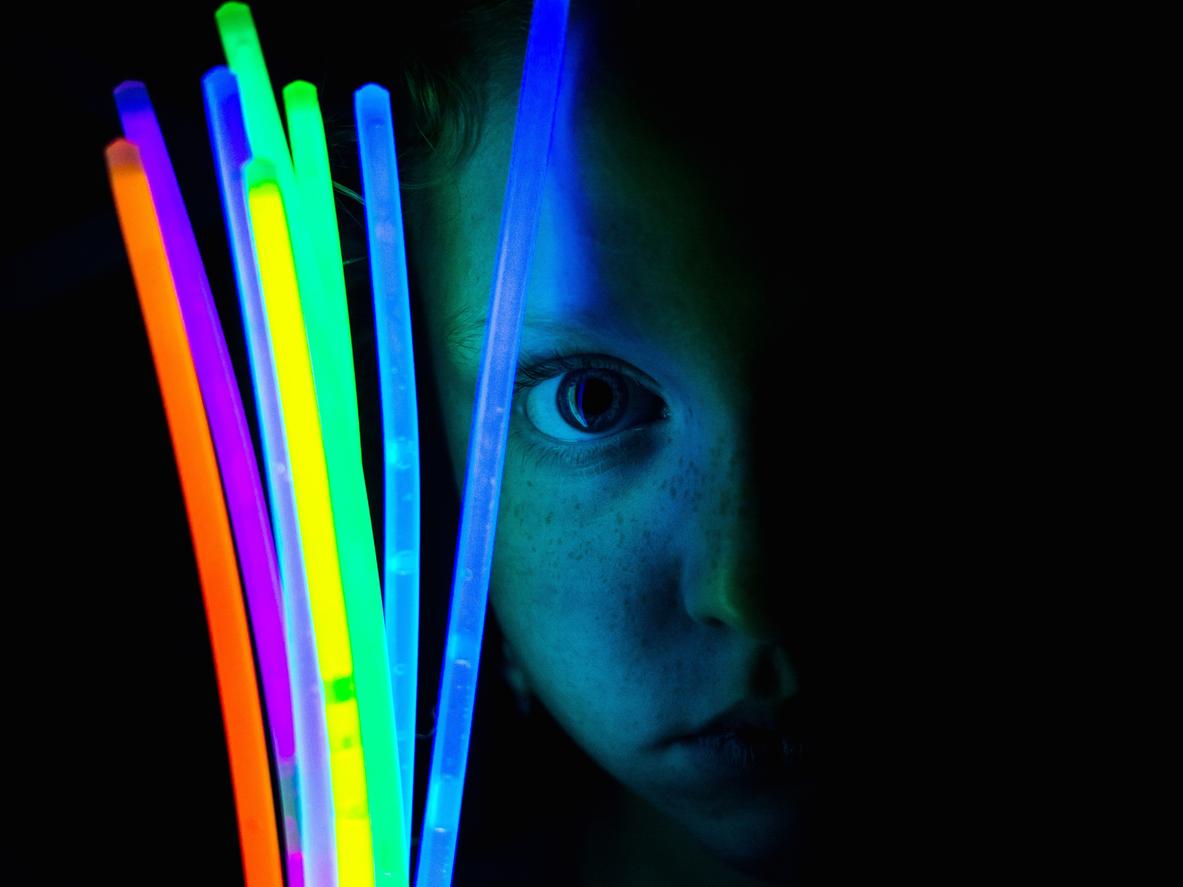Are Glow Sticks Harmful? Here's How They Affect Human and Planetary Health
They're beautiful to look at, but glow sticks can be harmful if mishandled.
Published Aug. 20 2024, 11:13 a.m. ET

Though they are popular for celebrations, concerts, and nighttime events, it must be said that glow sticks are a controversial and potentially harmful accessory. Like many inventions across the board, people were not keeping the environment in mind when they designed these products.
Are all glow sticks and every chemical inside them poisonous? Are there any planet-friendly alternatives? If you're considering purchasing glow sticks for your next party, concert-going experience, or celebration, continue reading to learn about how to keep safe around glow sticks.

What are glow sticks made of?
According to Poison Control, a glow stick is comprised of the following substances:
- hydrogen peroxide
- diphenyl oxalate (which, per the Vanderbilt University Medical Center (VUMC), provides energy for the light)
- a phthalate (per the VUMC, dibutyl phthalate serves as the solvent for the reaction)
- a fluorescent dye, which provides the color to the glow stick.
The act of cracking a glow stick to initiate the glowing color is a staple of many of our childhoods, and the chemistry behind it is nifty. Through an exergonic chemical reaction, per VUMC, we observe chemiluminescence resulting in vibrant colors in the glow stick, per Poison Control.

Are glow sticks toxic or poisonous if ingested?
While the substances within a glow stick may prove fatal if ingested in massive quantities, it doesn't seem likely that ingesting the chemicals in a glow stick would render immediate cause for concern in otherwise healthy people.
Per VUMC: "Dibutyl phthalate (the solvent) has been reported to cause significant morbidity and mortality when ingested in large quantities in industrial exposures. The quantity is significantly less in glow stick products making a serious reaction unlikely."
Additionally, per the North Carolina Poison Control Center, dibutyl phthalate is low in toxicity but may irritate. According to Poison Control, a bitter taste and an upset stomach are potential reactions, but crisis can be averted by wiping and rinsing your mouth with fresh water.
If an animal accidentally consumes or comes in contact with the substances in a glow stick, take them to an urgent veterinary hospital immediately.

Are glow sticks harmful for the environment?
The substances in a glow stick may harm the environment, and those holding them should exercise caution to prevent leakage. As Earth911 acknowledges, in Europe, dibutyl phthalate is a banned substance for cosmetics use.
Also, because glow sticks are contained within a single-use plastic tube where a chemical reaction occurs, once the glow fades out — or the celebration or occasion ends — glow sticks become another example of unrecyclable plastic waste.
According to Clarify Green, while glow sticks aren't biodegradable, recyclable, or environmentally friendly, there are other, more sustainable options, such as a reusable glow stick. Earth911 also suggests LED glow sticks, photoluminescent glow sticks, or harnessing the magic of bioluminescence to achieve the same glow.